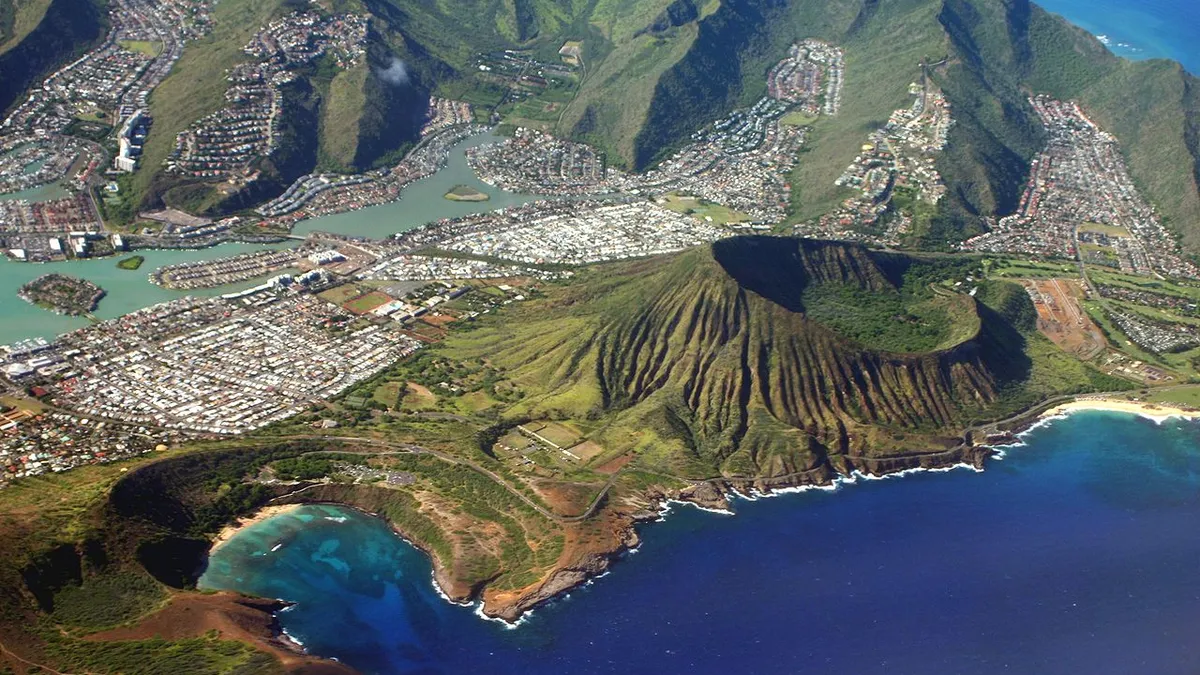Dive Brief:
- Hawaii became the first U.S. state to commit to 100% renewable fuel sources for public and private ground transportation, with a target of 2045, according to Hawaii Reporter and others.
- Hawaii's four mayors — Honolulu Mayor Kirk Caldwell, Maui County Mayor Alan Arakawa, Kauai County Mayor Bernard Carvalho Jr. and Hawaii County Managing Director Wil Okabe, representing Mayor Harry Kim — signed respective proclamations in mid-December.
- To lead the charge, the City and County of Honolulu, the County of Maui, and the County of Kauai pledged to transition all fleet vehicles to 100% renewable power by 2035.
Dive Insight:
Considering Hawaii's unique island isolation and connection to the surrounding environment, the state has always prioritized climate — and that priority became even stronger in 2015 when Gov. David Ige signed into law a bill to reach 100% renewable energy consumption by 2045. This decision caused "contentious cost and procurement debates" among Hawaii utility regulators, according to Utility Dive, however regulators recently ordered a new Smart Export solar tariff that will help propel the state toward this overarching target.
In June 2017, the mayors' involvement in this climate agenda grew following President Trump's decision to pull the U.S. out of the Paris climate accord. Hawaii became the first state to pass a law committing to the accord, during which Gov. Ige said Hawaii will "fulfill its kuleana (responsibility) on reaching our energy, water, land and other sustainability goals to make island Earth a home for all."
In a recent op-ed on Fast Company, Mayor Caldwell cited three main reasons for Hawaii's specific commitment on transportation: "waiting is not an option," "our people are leading," and "we can innovate our way to the future." Caldwell explained that ground transportation accounts for more than a quarter of Hawaii's greenhouse gas emissions and of the state's imported fossil fuel consumption, yet Hawaii is already a leader of electric vehicle adoption. He said encouraging more EV and autonomous transformation can "offer synergy and advantages."
A clear advantage for Hawaii residents is the opportunity to pass on the pump — Hawaii is home to notoriously high gas prices, which are expected to rise in 2018 due to low supply. However economic benefits for the island can also be predicted. Caldwell believes the renewable fuel commitments can attract new business and entrepreneurship to the island, which is a sentiment shared by Sherry Menor-McNamara, president and CEO of the Chamber of Commerce Hawaii. She touts the continued "renewable energy revolution" as one that has kept more than $300 million annually in the local economy, according to the Hawaii Reporter.
As the cities of Hawaii transform their public transit fleets, most mainland cities will likely keep a close watch to determine best practices and detect which private businesses are helping to push electric innovation forward. Additionally, Honolulu is slated to complete a resiliency plan in the new year with 100 Resilient Cities which will outline more specific climate-focused strategies from the city.












